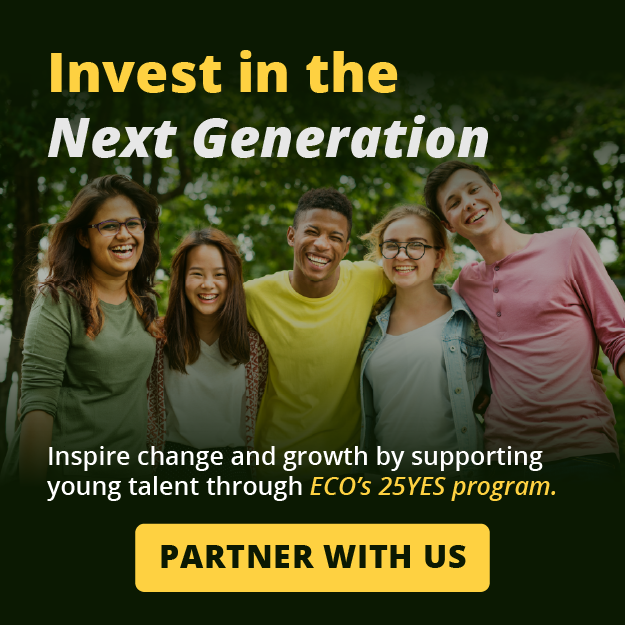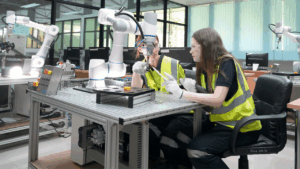Post by: Angie Knowles, ECO Canada
Consulting is the backbone of Canada’s environmental sector, with over 168,000 environmental professionals working in industries related to Professional, Scientific, and Technical Services according to this report.
What does it take to succeed in this field?
Alongside excellent technical expertise, environmental consulting professionals need top-notch communication skills. Much of their work depends on collaborating well with team members, relaying technical information to diverse audiences, and listening to client needs.
The problem is that these skills are rarely taught in school. Practitioners often become better communicators through hard-won experiences and sometimes even through devastating interpersonal mistakes.
But what if it doesn’t have to be this way?
What if there was a crash course you could take to prepare ahead of time for the most common communication challenges in consulting?
We decided to meet this need with a new online Professional Communications course and webinar designed specifically to help environmental professionals on the job. Learn more about professional communications or sign up for the free webinar.
Curious to know what kind of communication issues these two resources cover?
Check out our list of the top 3 communication dilemmas in consulting below, along with tips on how the pros handle them.
Top communication problems in environmental consulting and how to fix them
Dilemma 1: There’s major conflict on your team—and you’re one of the junior team members.
How the pros handle it…
Many people see conflict as a negative situation to be avoided whenever possible. That’s not how the pros view it.
Consulting experts like Nadia Yen, P.Eng, EP, see conflict as an opportunity, a form of “positive friction” in which they can hear about other perspectives on an issue and arrive at a more comprehensive solution that takes these different views into account.
Industry pros use several key tactics to turn a potentially damaging disagreement into a constructive discussion.
First, they acknowledge the expertise and experience of other team members. This is an especially useful technique when you’re just starting out in the field, new to the company, or working with more senior staff.
Second, communication experts bring the focus back to their project objectives, ensuring that everyone recognizes their shared investment in the project’s success and that the conflict doesn’t veer into personal attacks.
Most importantly, the pros remain open to all perspectives throughout discussions and withhold their judgement until it’s time to evaluate possible solutions.
This willingness to listen makes all the difference, as conflicts often escalate because teammates feel that they aren’t being heard.
Dilemma 2: You’re trying to explain complicated technical info to a non-technical audience. They look bored stiff.
How the pros handle it…
Consultants who excel at communication recognize that even if clients don’t seem interested in hearing all of the detail, there is still vital information that they do need to know about.
The key is to translate these important facts in a way that’s clear and easy to understand. The pros do this by avoiding technical jargon and writing in a concise, active voice.
They also hone in on why a particular detail is relevant to clients, including the impact it could have on their business. This tactic falls under the classic “WIIFM” approach, or What’s In It For Me? Take the time to consider and address what’s in it for your clients, and you’ll see a dramatic difference in their willingness to listen.
Dilemma 3: Your client doesn’t communicate well and you’re worried that this could derail the project.
How the pros handle it…
Are your fears valid? You bet.
Ask any experienced environmental consultant about a project that went wrong and they’ll cite poor communication as a major contributing factor.
It’s critical for you to establish an accurate understanding of your client’s needs, but how do you do this if your client doesn’t articulate those needs well?
Communication pros rise to this challenge by making sure that they frequently repeat and summarize key points when they speak with clients. This strategy involves re-stating any issues the client has mentioned and correcting any gaps if you haven’t understood them correctly.
Consulting expert Fatema Tawawala, P.Eng, EP, also prepare regular email summaries throughout a project—a great option to give the client a bit of space to review and digest the info, check in on project progress, and ensure that there’s a written record of what was discussed.
What’s your take on these communication dilemmas? Are there are any others you’d add to the list?
Ready to learn more? Check out our free recorded webinar with environmental consulting experts.





